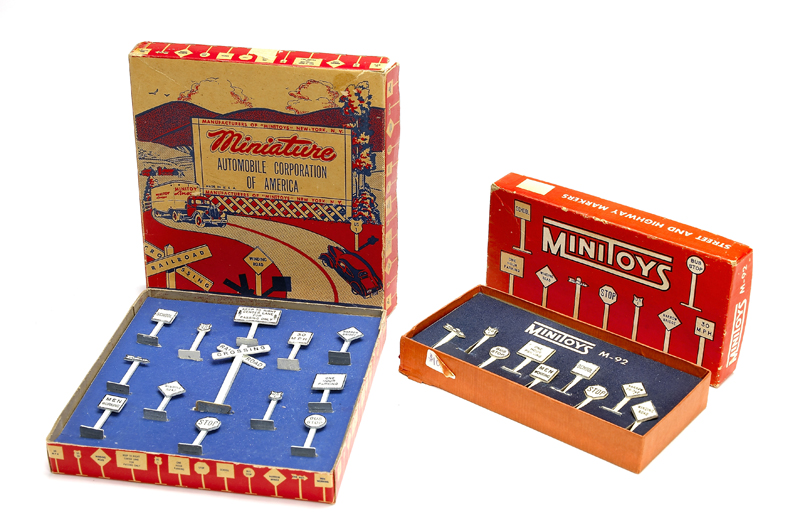
Minitoys No. M-54 road signs Manufacturers and store owners in the toy train business reached the same conclusion, especially in the years after World War II, when so many folks were trying to squeeze their way into the market and grab a few dollars. Several small companies sprouted up in the late 1940s and early […]
Read More…
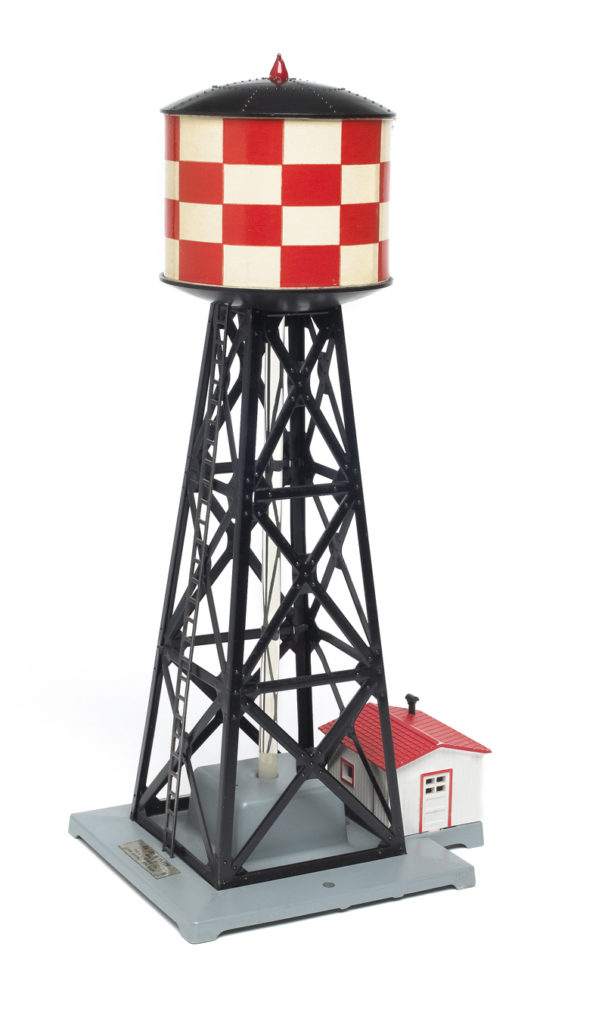
Toy train firms selling miniature versions of steam locomotives knew the full-size versions of those models needed to fill their boilers with cool water on a regular basis so their firebox could heat the water until it boiled. Then it could produce steam to move the rods and pistons that kept the drive wheels moving. […]
Read More…
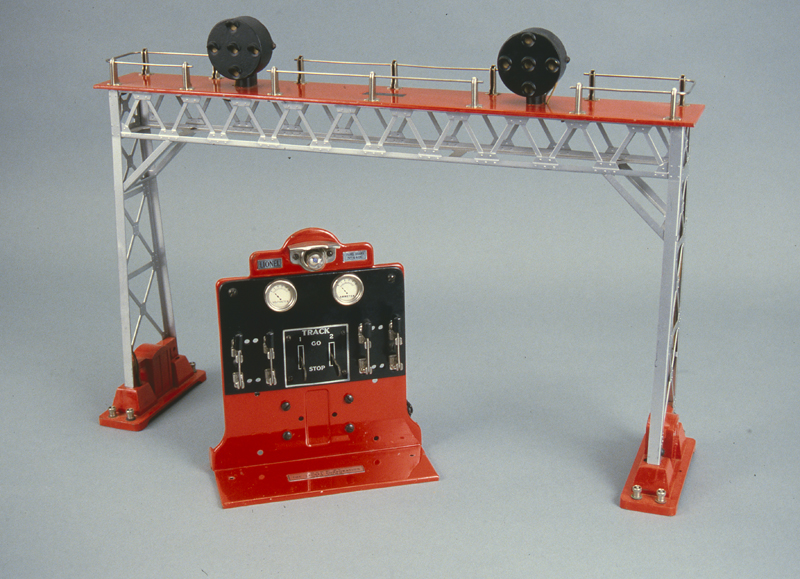
Imagine you’re in midst of designing a three-rail layout with a decidedly toy look. Maybe you want to give a sense of what electric trains were like before plastic models became prevalent. Or perhaps you have in mind an environment in which gaily colored playthings made of tinplated sheet metal predominate. Wisely, you’ve decided to […]
Read More…
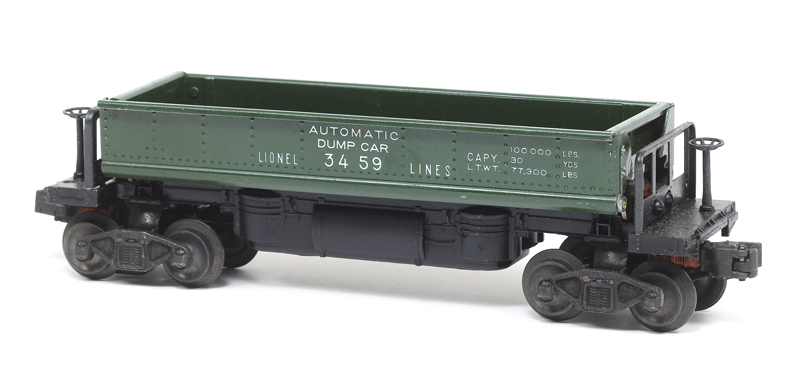
Take a look at the Lionel No. 3459 automatic dumping ore car, cataloged from 1946 through 1948. The most common version of this model came with a black-painted frame and black metal tray with “Lionel Lines” heat-stamped on both sides in white. Lionel offered this variation for all three years it cataloged the 3459 and […]
Read More…
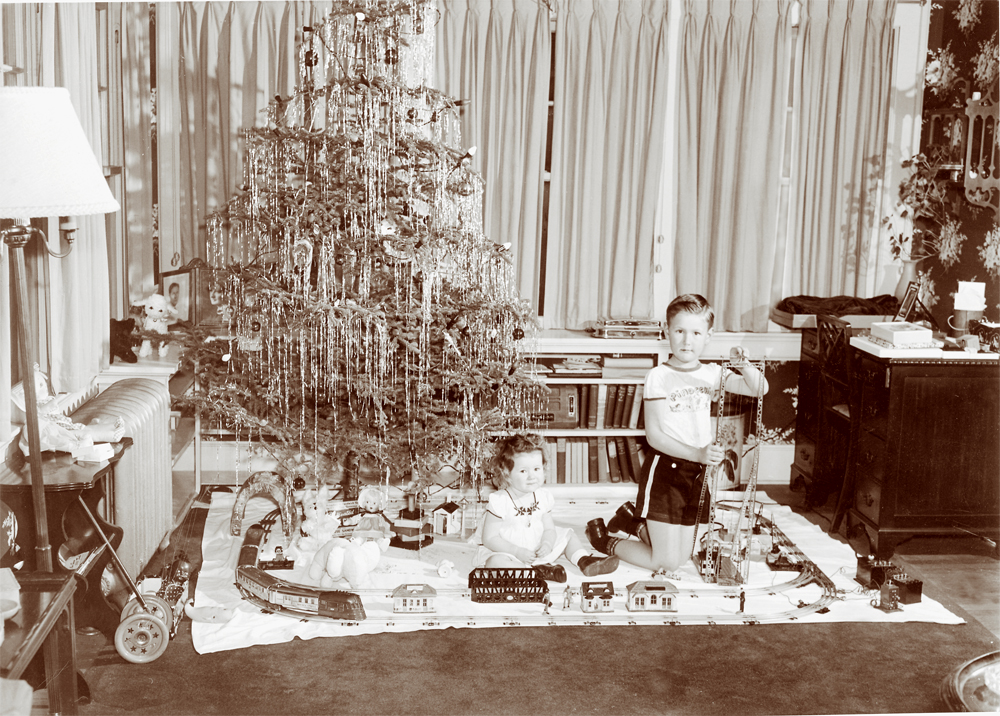
Christmas tree train set The history of the “putzen” In as early as the 18th century, Protestants immigrating to America were making miniature Nativity scenes in their homes around Christmastime. The Moravians, who at the time settled in the Lehigh Valley (eastern Pennsylvania), are recognized for consistently doing this activity. The term “putzen” is a […]
Read More…
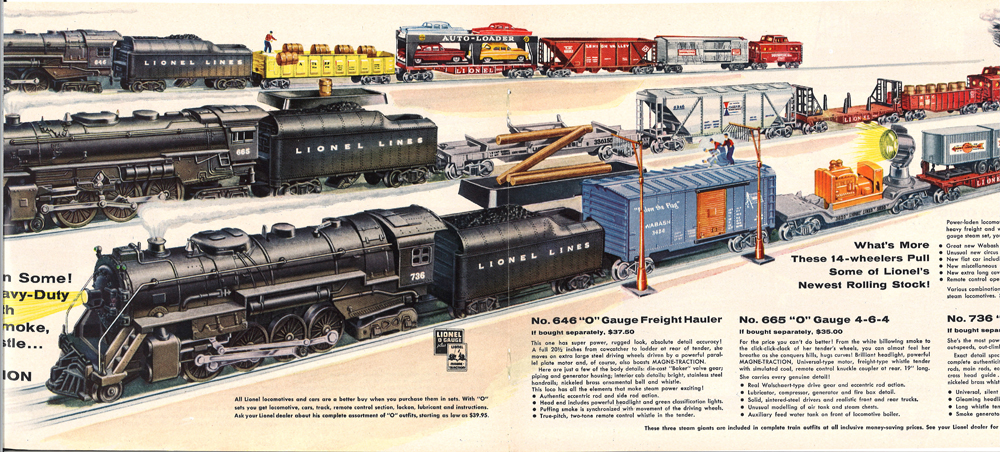
Lionel’s perfect postwar train set The perfect postwar Lionel train set should have a great locomotive, exciting and attractive pieces of rolling stock, and maybe an operating accessory. There would be plenty of track, too. Which engine and cars would you choose if you were able to assemble a perfect outfit from the post-World War […]
Read More…
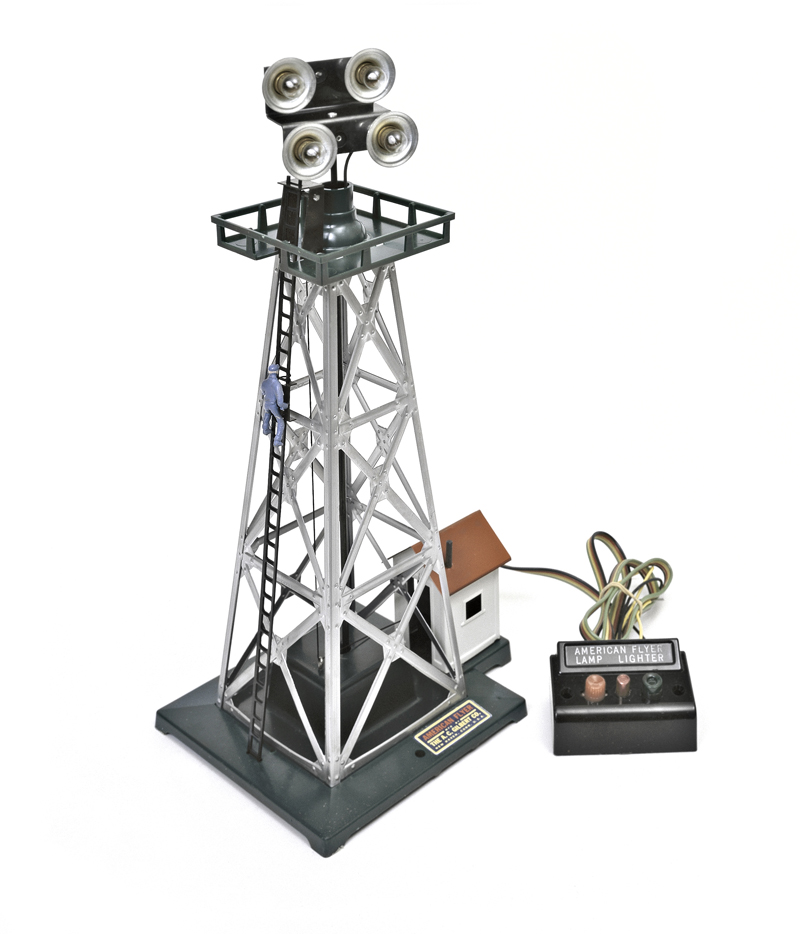
Lionel wasn’t alone in making landmark accessories after World War II. Colber and Marx brought out great ones. Above all, the A.C. Gilbert Co. developed outstanding S gauge accessories for its American Flyer line. One of the most significant and collectible was the No. 23780 Gabe the Lamp Lighter. The 23780, arguably the last great […]
Read More…
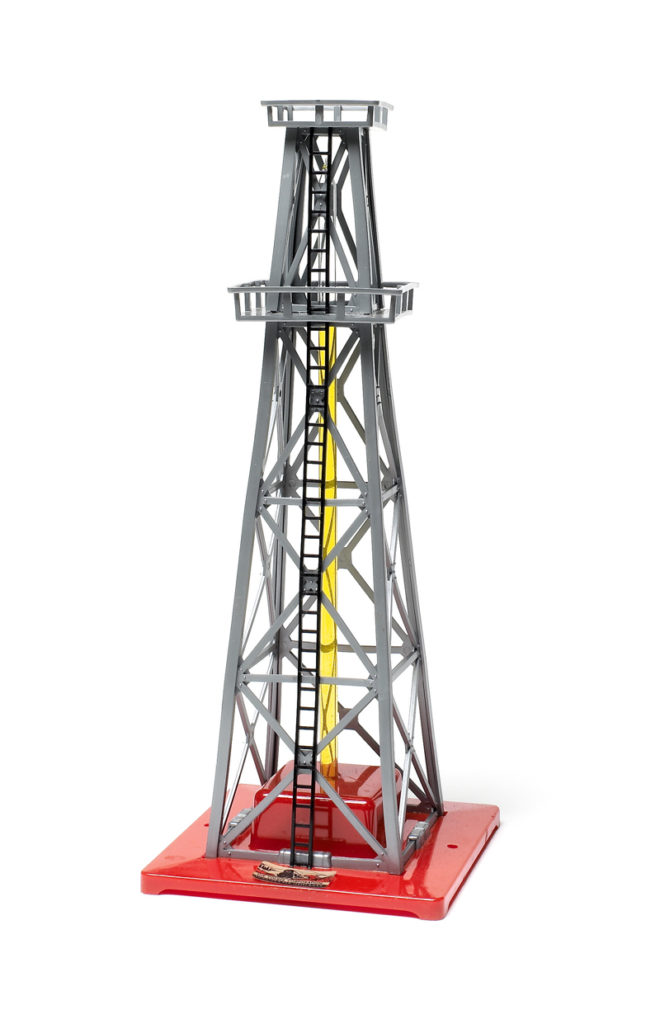
Amazing how an idea can take off and conquer a segment of the toy industry in the blink of an eye. In 1950, three manufacturers introduced oil derricks. No big deal except that, even though toy manufactures had been producing miniature oil cars since the very first years of the 20th century, there were no […]
Read More…
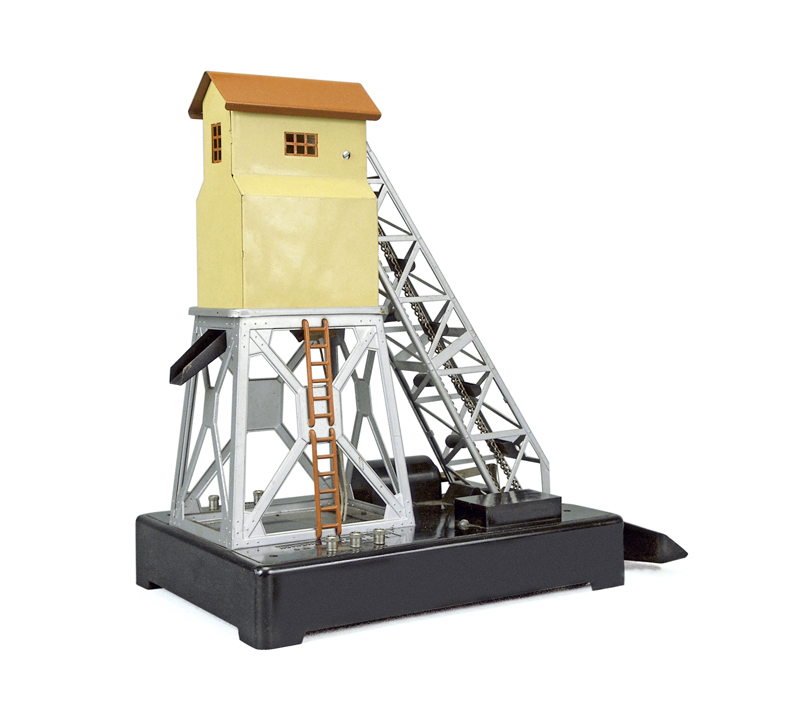
The trend of motorized accessories replicating activities associated with railroading began at the Lionel factory in New Jersey. Let’s spotlight the revolutionary No. 97 coal elevator, which made its debut in 1938. Prototypical – not always accurate The idea of a vertical loader with buckets on a chain that lifted coal from a receiving bin […]
Read More…
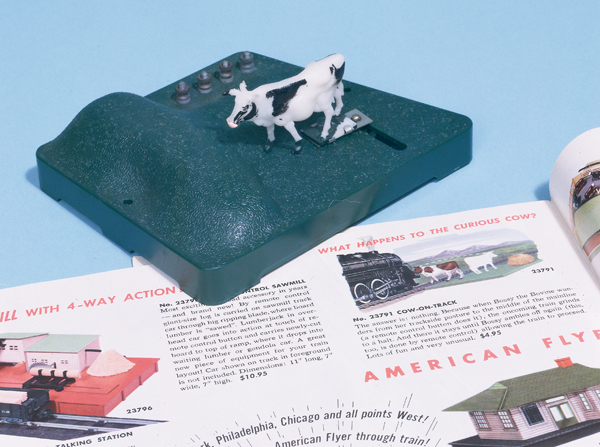
The world of animated O and S gauge toy trains accessories was, for all intents and purposes, a fairly serious one during the postwar era. Operating freight loaders, stations, and other facilities sought to imitate the activities associated with big-time railroading and industrial labor. There wasn’t time for frivolity. Where animals were concerned, however, all […]
Read More…
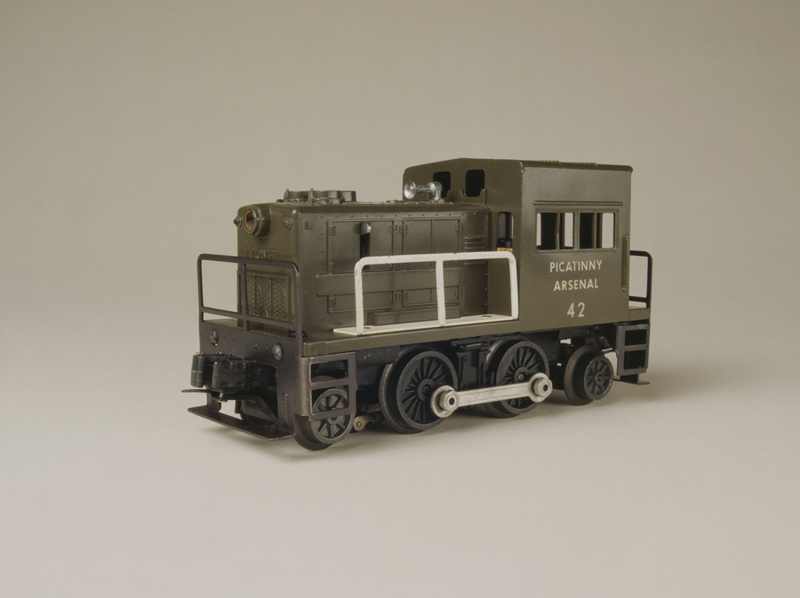
Joshua Lionel Cowen had adopted a firm stance on the need to avoid manufacturing “war toys.” Even on the eve of World War II, when Lionel was already producing precision instruments for the armed forces, Cowen refused to bend, unlike his peer and rival, Louis Marx. Everything changed in 1955, probably because the mood of […]
Read More…
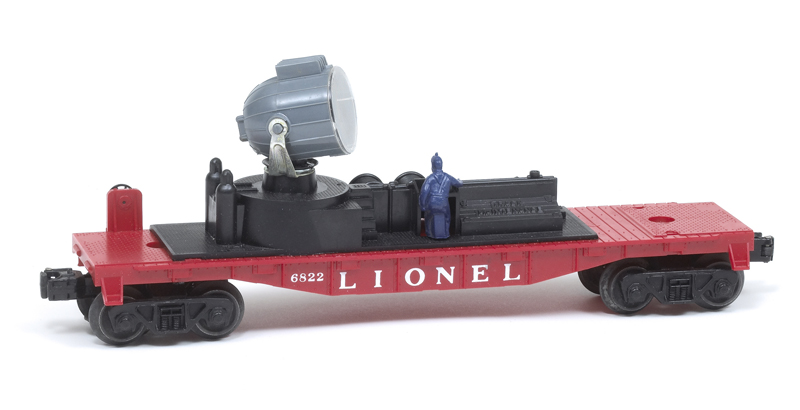
Improving a basic model: 1949-56 Lionel did not immediately fill its postwar line with a true searchlight car – just a work caboose equipped with a floodlight (No. 2420). The presence of a searchlight car in the rival American Flyer catalog, beginning in 1946, makes this omission more glaring. In 1949, Lionel brought out the […]
Read More…












